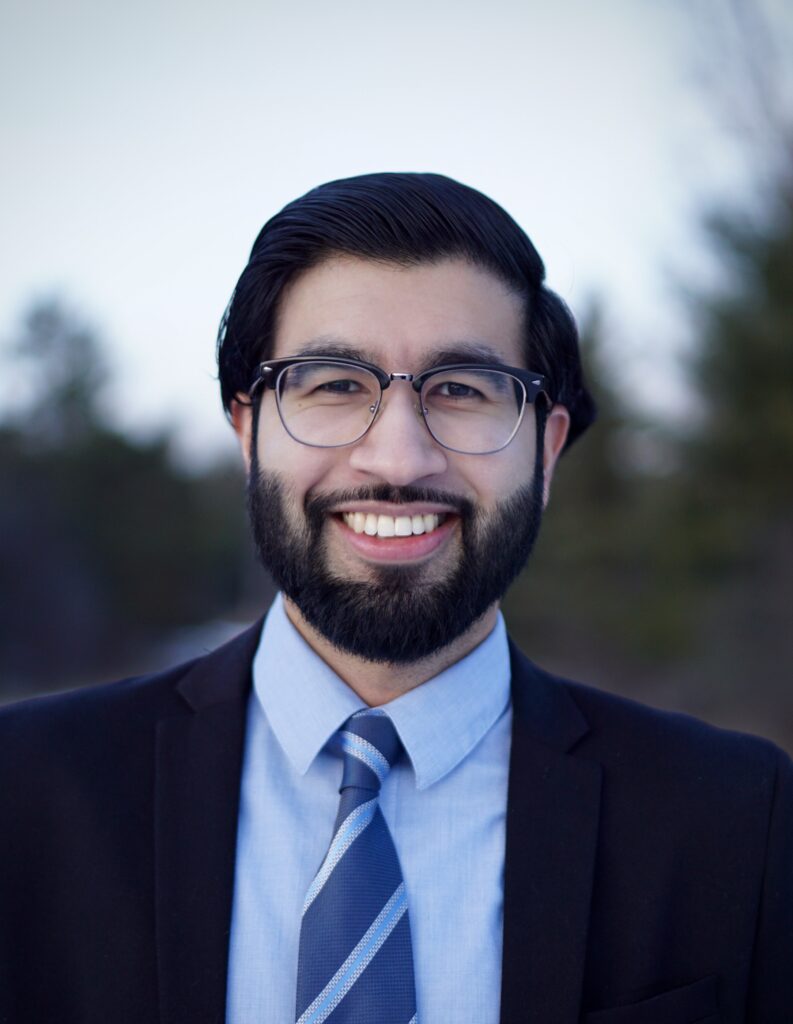Practicum partner spotlight: Q&A with Dr. Taaha Muhammad, Counselling Lead, Naseeha
Categories: Partners, Practicum, Q & AFounded over 15 years ago, Naseeha provides counselling services seven days a week to individuals from Muslim communities and non-Muslim communities through a confidential helpline. It also works with communities to provide them with the tools they need to address mental health. The organization’s efforts include educational programs and advocacy to raise awareness around the stigma associated with mental health.
We spoke to Naseeha’s Counselling Lead, Dr. Taaha Muhammad, to learn more about the agency, the practicum opportunities it offers Master of Social Work students, and how social workers can better serve Muslim populations.
 What type of services does Naseeha offer?
What type of services does Naseeha offer?
Naseeha offers three primary pillars of support to the Muslim community and broader communities as well. These include a Peer Support Helpline, an Education and Outreach department, and a Web Therapy program.
Our peer support helpline (1-866-NASEEHA) operates 12 hours a day, from 12pm to 12am, seven days a week over calls and texts. Our trained peer support counsellors support service users who reach out to us from around the world. The helpline often serves as a bridge for finding long-term mental health support and supporting those in crisis. Our helpline counsellors are trained to take a faith-based approach when requested and deemed appropriate.
The goal of our education and outreach department is to offer programs and workshops for individuals and families, and to promote mental health advocacy. Our team is able to develop and facilitate presentations that are tailored to the needs of our audiences.
Finally, our Web Therapy program is a free virtual program offered to those residing in Canada that require long-term therapeutic support. This program targets those who are unable to access therapy due to social or financial constraints, and it is open to individuals of various religions, ethnicities, and languages.
Could you tell us about the practicum experiences that you offer social work students?
MSW students will have the opportunity to work directly with both Muslim and non-Muslim populations while helping fill gaps in access to mental health resources. They provide an emotional and social connection with individuals through conversations that aim to validate the challenges people experience secondary to mental health concerns. Through active listening and a nurturing dialogue, they help empower individuals to recognize their own strengths and agency as a means to inspire hope.
Practicum students will also have the opportunity to participate in our quarterly intensive trainings and mock-call training sessions on various niche topics as designed by our Training team. In addition, they will be able to support the development of educational material and programming through the Education and Outreach team.
What advice do you have for social workers who are working with Muslim populations?
When working with Muslim populations, we advise using an anti-oppressive, trauma-informed lens. This involves recognizing and critically reflecting on how factors such as social location, biases, and potential power imbalances may influence their practice with an individual. Muslims often have a unique intersection of identities, and many are marginalized in their respective communities as both an ethnic and religious minority. When working with Muslims, social workers should be mindful of this and aim to provide resources and support that pertain to their individual needs. In addition, social workers must work to be allies with Muslims through listening and being respectful, as well as working to increase their own cultural awareness and knowledge. Finally, social workers must work to be advocates for their Muslim clientele in spaces where systemic barriers prevent them from accessing and receiving appropriate resources.
How could the field of social work better serve Muslim communities?
The field of social work can better serve Muslim Communities through creating safe and inclusive spaces, while implementing services that support their physical, mental and spiritual well-being. This includes facilitating open discussions where Muslims can be vulnerable about their experiences without facing judgment. In addition, professionals in the field of social work should collaborate with the Muslim community and amplify their voices when making important decisions. Furthermore, it is important to recognize and value the unique racial and ethinic backgrounds present within the Muslim community, and ensure that the services offered in both academic and community spaces are culturally and religiously inclusive. Professionals in the field of social work should also work towards understanding and creating awareness of the social issues pertaining to Muslims, as this will allow them to offer services that are most in line with Muslims’ needs.
Related: